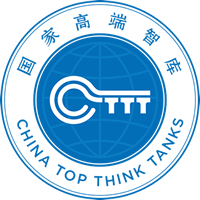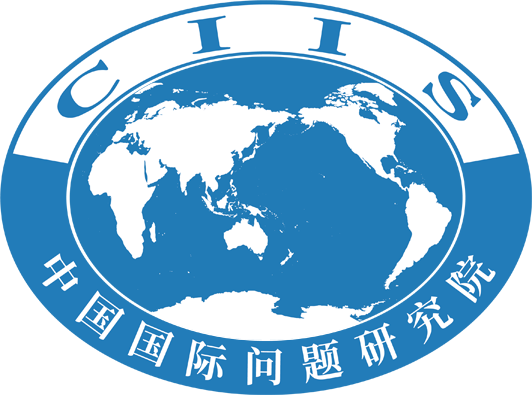BEIJING • Rising to her feet from among the audience and speaking in English in a measured, soft tone, Ms Fu Ying, a Chinese diplomat turned lawmaker, posed a question to US House of Representatives Speaker Nancy Pelosi during a panel at the Munich Security Conference in Germany this month.
"Do you really think that the (United States) democratic system is so fragile that it could be threatened by this single high-tech company, Huawei?" the grey-haired, 67-year-old Ms Fu asked, hitting back at Ms Pelosi's assertion that "China is seeking to export its digital autocracy" through the telecommunications giant.
A video of the episode went viral on Chinese social media, with netizens cheering on Ms Fu.
Washington has warned European allies that they risk "burning a lot of bridges" if they use Huawei's technology. At the request of the US, Canada arrested the daughter of Huawei's founder in December 2018 for allegedly breaching US sanctions on Iran. She faces extradition to and imprisonment in the US.
Chinese Vice-Foreign Minister Qin Gang had another message for the three-day conference, an annual gathering of foreign and security leaders from around the world. He sought to reassure the global audience that the impact of the ongoing coronavirus outbreak on China's economy will be "short-term and temporary" and that the economy will "rebound strongly" due to subdued consumer demand once the contagion is contained.
Chinese Foreign Minister Wang Yi could not have been more blunt, calling US criticisms of China "lies". Mr Wang told the conference: "The US does not want to see rapid development and rejuvenation of China, still less would they want to accept the success of a socialist country, but that is not fair, China has the right to develop."
Washington denies that it seeks to contain China or decouple the world's two biggest economies, but Beijing is unconvinced.
China's top diplomats have been in damage control mode to prevent the US from ganging up with Europe against China, and to attempt a makeover of their country's impaired international image in the wake of the outbreak, which has spread to about two dozen countries since December, infected more than 79,700 people and claimed over 2,600 lives - mostly in China - as of yesterday.
"It's very rare... for there to be such a concentrated line-up" of diplomatic heavyweights trotting out in China's defence at a single international event, professor of international relations Niu Jun of Peking University said in a telephone interview.
China's Ambassador to the US Cui Tiankai joined the fray, granting back-to-back interviews to US broadcaster National Public Radio and CBS' Margaret Brennan on Face The Nation this month.
Mr Cui lashed out at Mr Tom Cotton, a Republican senator from Arkansas, for spreading a "crazy", racially discriminatory and xenophobic conspiracy theory that the coronavirus was a man-made bio-weapon accidentally leaked from a Chinese lab. Epidemiologists have dismissed the rumour.
Many Chinese believe another conspiracy theory, blaming the US for covertly waging virus warfare against China. For many Chinese social media users, US criticisms are hypocritical as Washington did little to prevent the spread of the H1N1 swine flu pandemic in 2009, which killed an estimated 284,500 people worldwide.
HEAR BUT NOT LISTEN
Nonetheless, the arguments of China's top diplomats are likely to fall on deaf ears in the US, where anti-Chinese sentiment is gaining traction in the Trump administration, Congress, some media, academia and in the business community.
"It will be difficult to turn the tables," Dr Niu said.
Misapprehensions and tit-for-tat missteps in the past decade have poisoned bilateral relations.
Chinese leadership, US words and deeds for years now have been anything but friendly.
"American hawks will selectively hear what they want to hear," one insider told The Straits Times when asked if China would be able to change US perceptions of it.
"We should not be naive. US hawks demonise us, want to democratise and dismember us," the source said, requesting anonymity. The collapse and disintegration of China's Soviet brethren in 1991 is vivid in the memories of many Chinese.
China has found itself in a predicament, if not a no-win situation: Damned if you do, damned if you don't.
"The US Cold War mentality is very stubborn... opposing China at every turn," saidMr Ruan Zongze, executive vice-president of the China Institute of International Studies, a government think-tank.
"When we don't do well, the US says (it is because) our political system is no good. When we do well, the US still says our political system is no good,"Mr Ruansaid.
Chinese paranoia is not without basis. China has felt increasing heat from the US, which ignored World Health Organisation recommendations and imposed travel curbs, authorised the departure of embassy staff in what was seen by Beijing as a vote of no-confidence, hosted the Vice-President-elect of China's rival Taiwan, sailed a naval warship through the Taiwan Strait and passed a Tibet human rights Bill - all in the wake of the outbreak.
In the most recent move that riled China, the US last Tuesday declared five Chinese state-owned media outlets - two newspapers, a news agency, a TV network and a radio station - with operations in the US as operatives of the communist state, and not practitioners of journalism.
The next day, China revoked the press credentials of three Wall Street Journal reporters on the grounds that the newspaper ignored repeated representations and refused to publicly apologise for a commentary headlined "China is the real sick man of Asia", by Bard College professor Walter Russell Mead.
The headline struck a raw nerve in many Chinese as China was referred to as the "sick man of East Asia" during the so-called "Century of Humiliation" when China's last dynasty, Qing (1644-1911), ceded Hong Kong to Britain, and Taiwan to Japan, after losing the 1840 Opium War and the 1894-1895 Sino-Japanese War respectively.
The "Century of Humiliation" is deeply entrenched in China's national psyche, and Chinese President Xi Jinping has vowed to make China great again.
Four decades of market-oriented reforms and opening up to the outside world have transformed China from an economic backwater into an export powerhouse and the world's second-biggest economy. But China still suffers from victim mentality, craving for recognition and respect.
U.S. GRIEVANCES
There is much cause for concern in the US about China's growing political, diplomatic, military and economic clout. Instead of becoming a liberal democracy as the West had envisaged, China has tightened the noose on dissidents, lawyers, non-governmental organisations, the media and the Internet.
President Xi's China has become more assertive on the diplomatic and military fronts.
Washington also views with suspicion Mr Xi's signature Belt and Road Initiative, an ambitious strategy to revive ancient land and sea trade routes linking China with the rest of Asia, Europe and Africa through infrastructure projects.
The US list of grievances is long, including China's bulging trade surplus with the US, restricting access to the Chinese market with high tariffs and import quotas, subsidising Chinese industries and exports, shielding Chinese state-owned enterprises, currency manipulation, forced technology transfers, intellectual property theft and alleged cyber attacks. Washington wants a level playing field for its companies.
Seeing China as an evil empire, US hawks have openly called for "regime change", including Mr Steve Bannon, who served as White House chief strategist during the first seven months of US President Donald Trump's term.
This month, US Secretary of State Mike Pompeo rubbed salt into Beijing's wounds when he called China "the central threat of our times".
Other US officials have expressed disappointment in China's lack of transparency - a view shared by many Chinese social media users - and slapped China on the wrist for refusing to let the US Centres for Disease Control and Prevention and other medical and public health officials into the country.
But for Beijing, the request is condescending.
"It's imperial arrogance and false sympathy. The US offers us assistance, but then stabs us in the back," a second source with leadership ties said, adding that China is not accountable to the US.
"We've allowed in a World Health Organisation delegation that included US virologist(s). That is the right way to go."
SYMPATHY, SUPPORT AND SOLIDARITY
While bilateral relations with the US have turned ugly, China's ties with most of its Asian neighbours are good.
Minister Wang flew to Laos last week for a hastily convened special meeting with 10 Asean peers. The mood was upbeat, in stark contrast to that in Munich, with neighbours showing sympathy, support and solidarity.
The Asean meeting kicked off with a rallying cry of "Stay strong, China! Stay strong, Asean!" by foreign ministers at a joint photo session.
Singapore's Foreign Minister Vivian Balakrishnan acknowledged that China has been dealing with the epidemic in a highly responsible manner and taking measures rarely seen in the world.
Philippine Foreign Minister Teodoro Locsin chipped in, thanking China for its "unprecedented domestic measures and quick action".
Japan, which invaded and occupied parts of China from 1931 to 1945, has been the kindest during these difficult times, donating one million face masks to China. Boxes containing relief goods were plastered with the national flags of the two countries and ancient Chinese poetry: "Mountains and rivers different. Wind and moon under the same sky." A video of a Japanese ballet troupe singing China's national anthem moved many Chinese.
Bilateral ties have been warming since Beijing mended fences with Tokyo in 2014 and Manila in 2016.
The public health crisis is President Xi's worst headache since he took power in late 2012. China juggled multiple crises last year - a trade and tech war with the US which dented China's slowing economy, months of anarchy in Hong Kong and US accusations that China detained more than one million Muslim Uighurs as part of a crackdown on terrorism and religious extremism. US congressional passage of legislation in support of Hong Kong protesters, Muslim Uighurs, Tibet and Taiwan did not go down well with China, to say the least.
Chinese nationalists are convinced that the US is the black hand behind unrest in Hong Kong last year, Xinjiang in 2009 and Tibet in 2008.
But for all the rhetoric, China and the US are not about to slug it out in a free-for-all. While China and the US have been mired in a vicious circle and playing the blame game, it cannot be denied that the two giants need each other.
The US was instrumental in China's economic rise, pouring in investment, engaging in trade and sharing know-how. China, for its part, has bought about US$1 trillion (S$1.4 trillion) worth of US Treasury bills and helped bail the US out of the 2008 global financial crisis.
Despite the escalating war of words, there is a lot of room for constructive cooperation between China and the US, including preventing nuclear proliferation, climate change, fighting terrorism and pandemics, and cyber security.
Source: The Strait Times, February 25, 2020.
https://www.straitstimes.com/opinion/china-faces-heat-over-coronavirus-control



